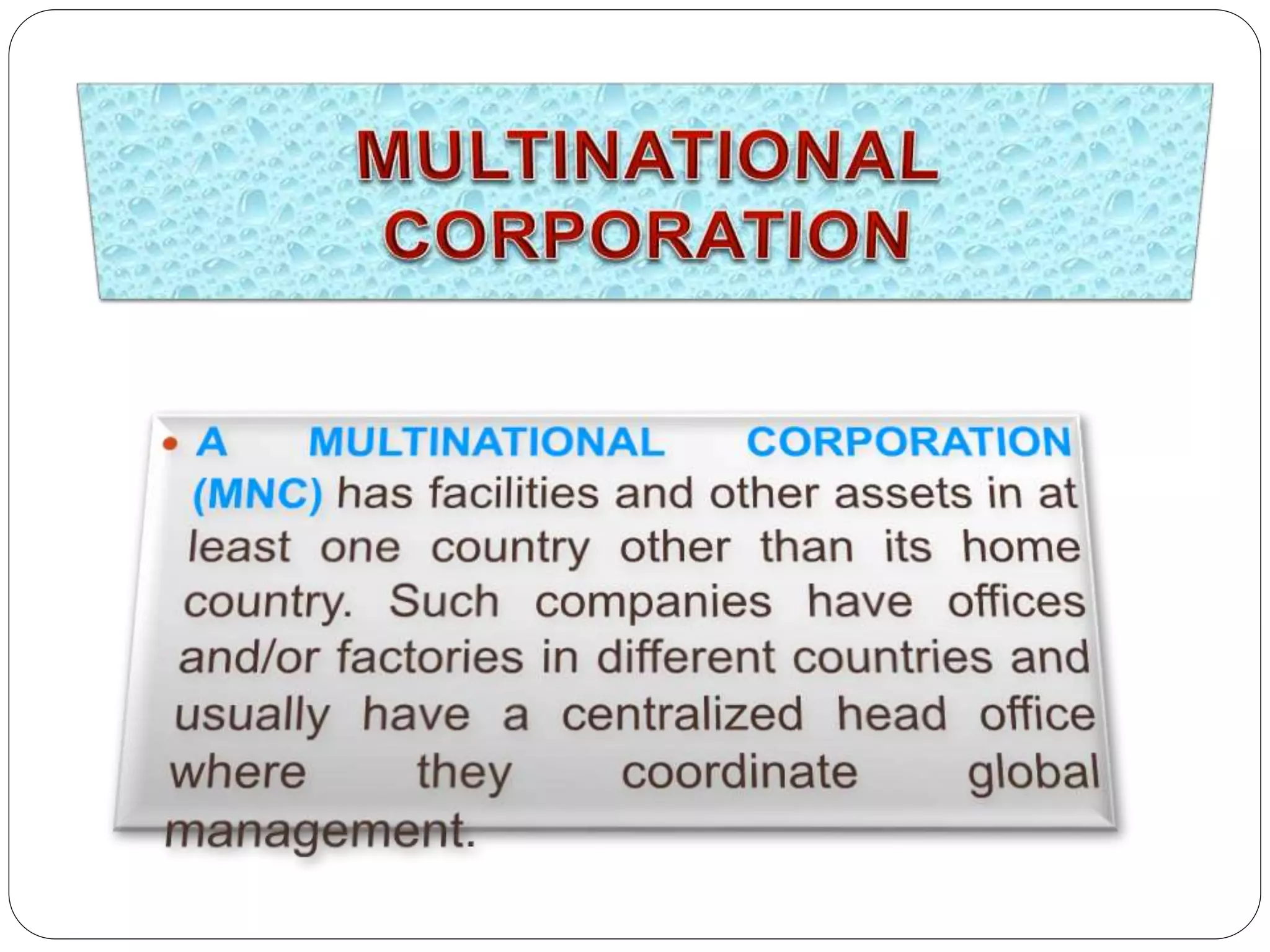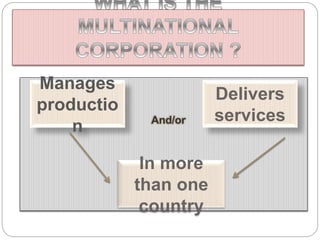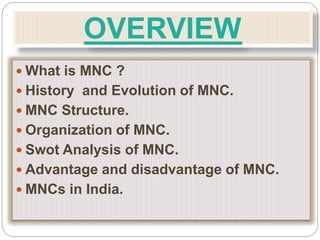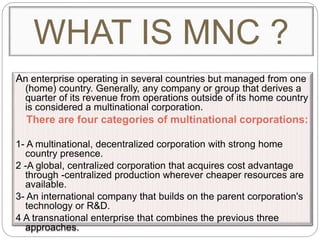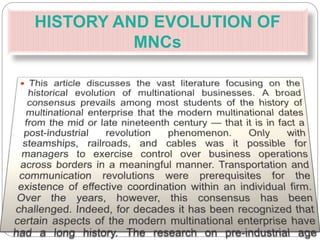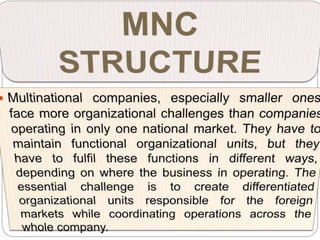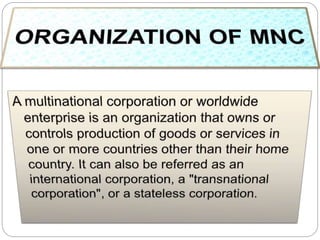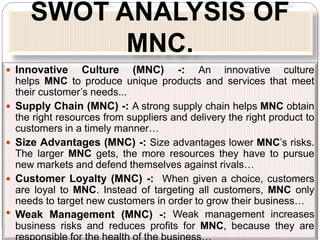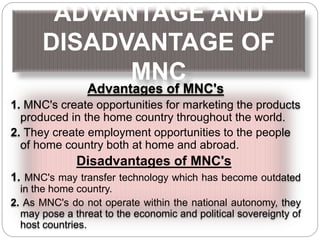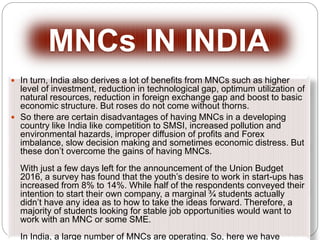This document discusses multinational corporations (MNCs). It defines an MNC as an enterprise operating in several countries but managed from one home country. There are four categories of MNC structures: decentralized with a strong home presence, centralized for cost advantages, built on parent company technology, and a combination of the three. The document also outlines the history and evolution of MNCs, their organization and structure, a SWOT analysis, advantages and disadvantages of MNCs, and discusses MNCs operating in India.
